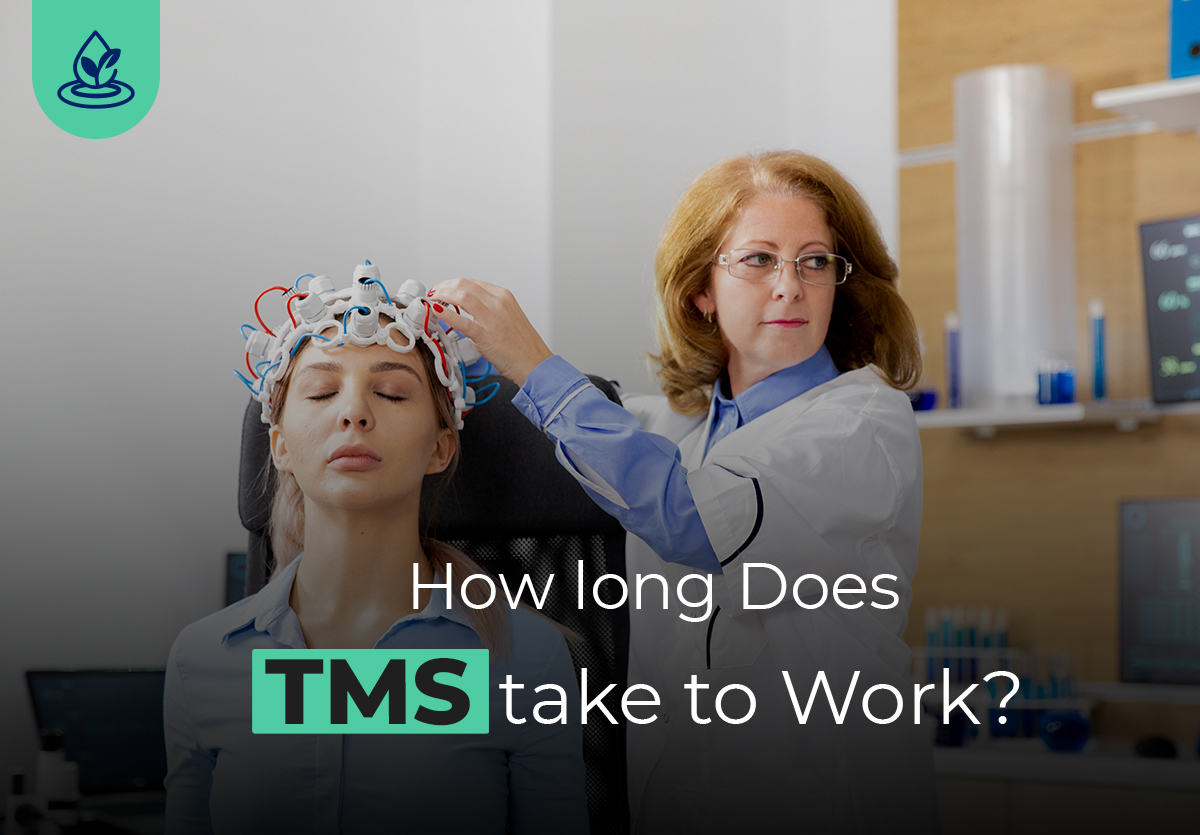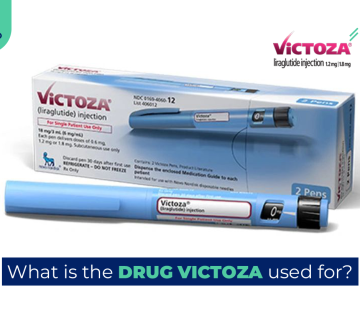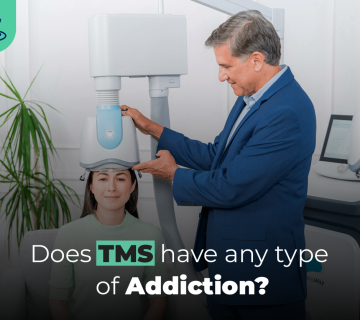Transcranial Magnetic Stimulation (TMS) is a non-invasive treatment that has shown its effectiveness in many mental health conditions like depression and anxiety along with chronic pain concerns.
At the beginning of accelerated TMS treatment, patients are now interested in how long does TMS take to work and when does TMS start working.
We will look into these questions and find out the standard TMS treatment schedule and requirements that highlight how quickly TMS results can be seen.
TMS therapy, or Transcranial Magnetic Stimulation, offers new hope for individuals battling depression, anxiety, and OCD. Consider Atlantis Wellness Center, where you can get the best treatment.
How TMS Works
TMS therapy contains a situating coil over the scalp, which sends a magnetic pulse to a specified area of the brain. These pulses help to activate the areas of the brain that reduce activity in patients with depression. Initiating a TMS mapping session is important to select accurate locations for treatment.
Accelerated TMS treatment are the most common, allowing for multiple sessions daily and speeding up a patient’s recovery process. The question of how quickly does TMS work is specifically related to those who opted for this approach.
Interpretation of the TMS Treatment Schedule
TMS therapy is generally a non-invasive method in which magnetic fields are used to stimulate the cell’s nervous system in the brain, as research has shown that it usually helps to deal with depression and anxiety and helps to deal with physical illness, like magnetic therapy for shoulder pain.
A TMS treatment schedule typically involves sessions, mostly 3-5 times a week. While some patients may get relief from symptoms within a few weeks, others may take longer.
Typically, TMS takes 4 – 6 weeks to create noticeable results, with persistent improvement over 8-12 weeks.
However, the question remains: how many TMS sessions are required for the patient to notice a change?
When Does TMS Start Working?
Most patients have concerns regarding the efficacy of TMS and how long does TMS take to work. Some patients feel improvement within the first few weeks, while others require additional sessions for a substantial result.
Such variations vary from patient to patient, depending on the severity of symptoms and personal response toward treatment.
Patients considering TMS can determine the duration of TMS the experience before and after TMS therapy results would be favorable.
How Many TMS Treatments to Feel Better?
The required TMS sessions vary, but most patients undergo 20 to 30 sessions. It’s important to discuss questions like how many TMS sessions? How many TMS treatments to feel better? For a reasonable result.
Patients frequently shared their TMS experiences, emphasizing how TMS saved their lives from anxiety or how TMS changed their lives by improving depressing symptoms.
Assessing the Duration and Endurance of TMS Results
Once the TMS treatment is completed, patients usually ask, how long does TMS last? It is noted that TMS results may vary, as some patients experience long-term relief while other patients require continued maintenance sessions. Questions like how long TMS treatment lasts TMS treatment is essential for setting reasonable expectations.
Assessing TMS for Pain and Active Recovery
Apart from mental health, TMS is being effective for physical illness, including TMS and pain management. The central concept of active recovery TMS includes therapy by considering rehabilitation strategies. Recognizing how to use TMS efficiently helps to widen its implications and enhance patient results.
Addressing Concerns: TMS Side Effects and TMS Cost Per Session
TMS is generally safe and well–accepted, but it’s essential to know its probable TMS side effects, such as slight headaches or scalp irritation. Concerns like TMS memory loss are usually untrue, but discussing such symptoms with health professionals is recommended.
Financial considerations, like TMS therapy cost without insurance, and TMS cost per session, vary depending on location and provider. Searching for TMS therapy for depression near me can provide related information along with availability and pricing.
TMS Success Stories and Challenges
Regardless of TMS efficacy, TMS is not a one-size-fits-all solution. Some patient experience TMS not working as expected, requiring modifications in their treatment plan. Though various success stories exist and highlight the therapy’s perspective, many patients admire its effect: TMS success rate for anxiety and how TMS saved my life from anxiety.
Conclusion: How Long Does TMS Take to Work?
Despite this, how quickly TMS works varies through different factors, like individual patient responses and treatment acceptance. With the TMS treatment schedule and reasonable confidence, patients can journey towards improving their mental health and well-being. For those who suffer from anxiety, depression, or even physical pain, TMS provides them a ray of hope.
Estimating how long TMS takes to work and the TMS results would motivate patients to make informed decisions about their treatment options. Eventually, the transformative power of TMS lies makes it unique, while other treatments may have fallen short.
FAQs
How Long Does TMS Take to Work?
The deadline for getting the effects of Transcranial Magnetic Stimulation (TMS) varies among patients. Most patients get optimal results within two to four weeks of commencing the treatment.
The question of how long does TMS take to work differs on multiple factors, like the current severity of symptoms and patient response to therapy.
Usually, TMS contains daily sessions leading over four to six weeks, with many experiencing substantial relief at the end of treatment.
What Are the Side Effects of TMS Therapy?
TMS therapy is usually considered safe and well-tolerated, but just like any other medical treatment, it may have some side effects. Commonly reported side effects are slight headaches and scalp irritation.
These side effects are temporary and resolved shortly after TMS sessions. Concerns regarding TMS Memory Loss are untrue and baseless, and it is essential to discuss any side effects with healthcare providers to keep yourself informed and safe.
How Much Does TMS Therapy Cost?
The cost of the TMS therapy may vary depending on the location, provider, and insurance coverage. On average, the TMS therapy cost without insurance lies between $6,000 to $12,000 for an entire course of treatment.
Can TMS Treat Anxiety as Well as Depression?
As TMS is mainly used as a treatment to deal with depression, research regarding its effectiveness for depression and anxiety treatment is ongoing. Some of the studies recommended a positive TMS success rate for anxiety, emphasizing its importance to those who are struggling with depression and anxiety.
TMS to deal with depression and anxiety is still not widely adopted, so it is better to discuss this option with a healthcare provider to suggest its efficacy for your specific condition.







No comment